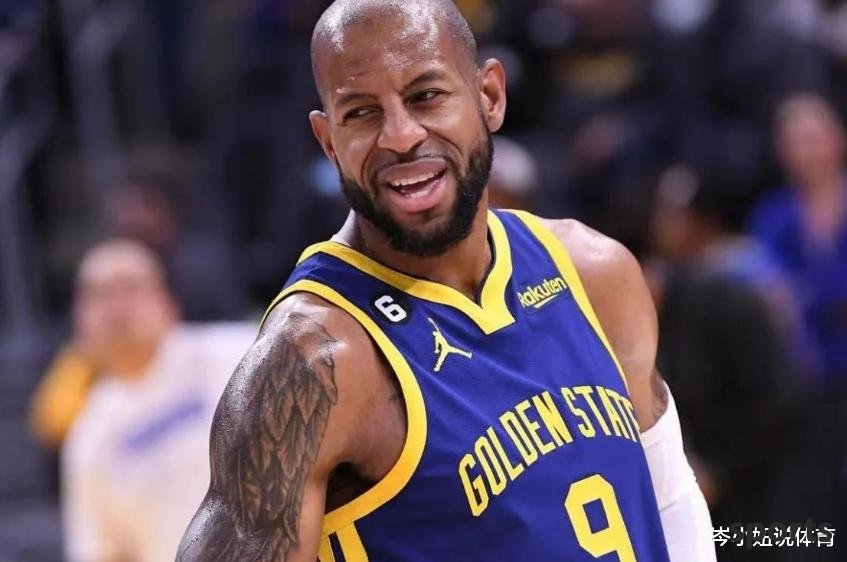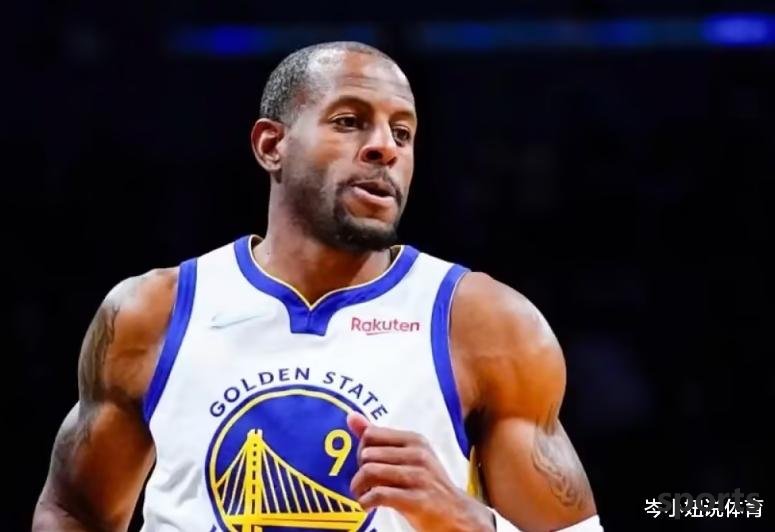AA-Sport > Basketball > The lowest value FMVP in NBA history is Igudara of the Warriors, no matter what angle
The lowest value FMVP in NBA history is Igudara of the Warriors, no matter what angle
On June 13, the issue of FMVP attribution in the 2015 NBA Finals is still one of the most controversial topics in the basketball world. When Andre Igdala took over the Finals MVP trophy from Bill Russell, not only did the audience boo, but basketball fans around the world expressed strong confusion on social media - why did Stephen Curry, the absolute core who led the Warriors to win the first championship in 40 years, be ignored on the most important stage? Analyzing from multiple dimensions such as data, tactical value, game influence, etc., this is the most illogical FMVP selection result in NBA history.

Judging from the basic data, Curry averaged 26 points, 5.2 rebounds, 6.3 assists and 1.8 steals per game in the 2015 Finals, and his three-point shooting percentage was as high as 38.5%. In comparison, Igudara's data is only 16.3 points, 5.8 rebounds and 4 assists, with a shooting percentage of 52.1%. More importantly, Curry averaged 42.5 minutes per game in the series, which was the highest playing time in the team, while Igudara averaged only 34.1 minutes per game. With the overall advantage in core data such as scoring, assists, and steals, Curry actually lost the election, which is extremely rare in NBA history. You should know that since the establishment of the FMVP Awards in 1969, no player has averaged more than 25 points in the finals but failed to win the award, Curry set this embarrassing record.

In-depth analysis of the competition process will reveal more intriguing details. In the desperate situation where the Warriors were behind 1-2, Curry scored 22 points in G4 to lead the team to equalize the score, and scored 37 points in G5 (17 of which came from the fourth quarter where the winner was decided). Especially in the last 5 minutes of G5, Curry scored 12 points alone, including two consecutive key three-pointers, directly defeating the Cavaliers' counterattack momentum. Igudara scored 22 points and 14 points in these two key battles. Although her performance was remarkable, it was far from the level that determined the game's trend. When the team needs to score the most, the ball is always in Curry's hands, which is the essential difference between a superstar and a character player.

From a tactical perspective, Curry plays an irreplaceable core role in the Warriors' system. Throughout the series, the Cavaliers did not hesitate to use double-teams or even three-person surrounds to limit Curry. This defensive strategy directly liberated other teammates. More than 70% of the open shooting opportunities Igudala got from Curry's pass after attracting double-teams. Data shows that when Curry was on the court, the Warriors beat their opponent by 16.3 points per 100 rounds, and the figure plummeted to -4.1 points when he rested. This huge influence gap cannot be fully reflected by any basic data. As David Blatt, then-Cavs coach, said: "All our defensive arrangements are to limit Curry, and other players' data improvements are a by-product of this strategy. "
The drama of the voting process further exposed the shortcomings of the selection mechanism. Of the 11 votes, Igudara won 7 votes, Curry won 4 votes, and James unexpectedly won 4 votes, although the loser. This dispersed voting result itself shows that the judges lack clear standards. What's even more ridiculous is that some judges publicly admit that "Curry already has two MVPs, so he should give others a chance" is such a non-competitive reason. ESPN reporter Zach Lowe later revealed that at least two voting reporters regretted their choices and believed that they were misled by the narrative of "changing the series trend" - after Igudara was promoted to the starter, the Warriors won three games in a row, but in fact, this is the result of the coaching staff's tactical adjustment and should not be simply attributed to a single player.
Historical comparison makes this selection even more absurd. When Parker averaged 24.5 points per game and was elected FMVP in 2007, Duncan averaged 18+11 points per game; in 2014, Leonard averaged 17.8 points per game, but the Spurs' team basketball characteristics were widely recognized. The situation in 2015 was completely different: Curry was not only the scoring king and assist king, but also the starting point of all the Warriors' offensive tactics. Although Igudara has made contributions to defending James (limiting the opponent's shooting percentage to 38%), modern basketball has long proved that defense is a team project, and cases of winning awards based on defensive performance alone (such as Billups in 2004) require players to be dominant on the offensive end.
This misjudgment has had a profound impact on the credibility of NBA awards. The alliance has since revised the FMVP selection process and required media representatives to attend the data analysis briefing before voting. Curry was elected as the FMVP unanimously after winning the championship in 2017 and 2018, which is also a correction to this historical error to some extent. But time cannot go back. The 2015 trophy belonging has become one of the biggest unsolved cases in NBA history. As the Warriors and team reporter Monte Poole said: "When you show the careers of Curry and Igdala to the future, no one will believe the belonging of this FMVP. It is like an absurd drama that occurs in parallel time and space. "
Looking back at this history, what we see is not only the accidentality of award selection, but also the evolutionary process of basketball cognition. With the development of data analysis technology, people are increasingly understanding the complex relationship between "competition influence" and "basic data". Igudara is an excellent champion puzzle, but Curry is the epoch-making superstar who changed the sport of basketball. This wrong FMVP attribution eventually became an alternative footnote to confirm Curry's greatness - it tells the world in a counter-proof way: when a person is so powerful that he subverts traditional basketball cognition, even professional judges will temporarily lose their judgment.
Free Online GamesRelated Posts
Trail Blazers official: Team will travel to Salt Lake City
BasketballReported by the Trail Blazers official account, from the perspective of Torn City. PDX✈SLC RipCityviews.PDX✈SLC Mini-game recommendations: Ball vs Blocks...
morePelicans official announcement! Looney has sprained his left knee ligament and will be sidelined for at least 2-3 weeks. The old player once said that the Pelicans were cursed.
BasketballOn October 16, the Pelicans suffered another injury. The team's new aid Looney was determined to be injured for at least 2-3 weeks. The New Orleans Pelicans officially announced that Kevin Looney was diagnosed with a sprain of the proximal tibio...
moreIf Shepard is traded after 20 games, Udoka will definitely choose between Whitehead and Holiday.
BasketballThe Rockets are basically certain that Shepard will enter the starting lineup and may give him 20 games. If that doesn't work, the Rockets will make a decisive trade. Udoka should prefer White or Jrue Holiday. White and Jrue Holiday won a champi...
more
Hot Posts
- Warriors: Petition Seth Curry to become the number one jersey sales in the season
- Congratulations to the Lakers! The forward line is traded, and it would be perfect to trade Reeves for Avdia
- The curtain of the NBA in the new season is about to kick off, and the heroes compete for the destiny
- Lakers General Manager Robert Pelinka was interviewed and responded positively to various speculations surrounding LeBron James recently
- US media commented on the strongest player every year in the 21st century: James dominated in 8 years, O Pang Kobe Jokic dominated in three consecutive games
- Only 505 points away, this 51-year NBA record will be broken by Westbrook in the new season
- The Lakers are really ungrateful! If James hadn t joined, the Lakers Dynasty would have collapsed long ago
- HG08 2025 NBA Finals: 4 Things to Watch in Game 6 of the Finals
- Young Hero! Jaylenway scored 40+ in the finals in the first three years of his career. In 2006, Wade s first player
- G1 in the Eastern Conference Finals made a shocking comeback! Brunson scored 40+, but he said this when interviewing him after the game!
Recent Posts
-
It s too strong to get the Bill Clippers! The Clippers are a strong contender for the championship next season
-
It s my decisive victory again! Gordon scored 22 points with his 361°AG5 custom shoe style!
-
What are the wrong paths in Harden s career?
-
James talks about 1-3 reversal of the 16th Finals 73-9 Warriors won the championship: That moment made me GOAT
-
NBA prediction: The Thunder s first championship in history, Kato FMVP!
-
27-year-old Tatum scored 13,784 points. Do you know how many points did 27-year-old Kobe get?
-
Interpretation of the Rockets new season schedule: What changes does Durant s arrival bring to the Rockets schedule
-
Holding a full middle class exception, but the Clippers are likely not to sign Simmons back this summer?
-
Start grabbing, defend the gate! Harden nemesis buys it
-
NBA rumors: Suns and Rockets are negotiating Durant deal and "reduce" the asking price